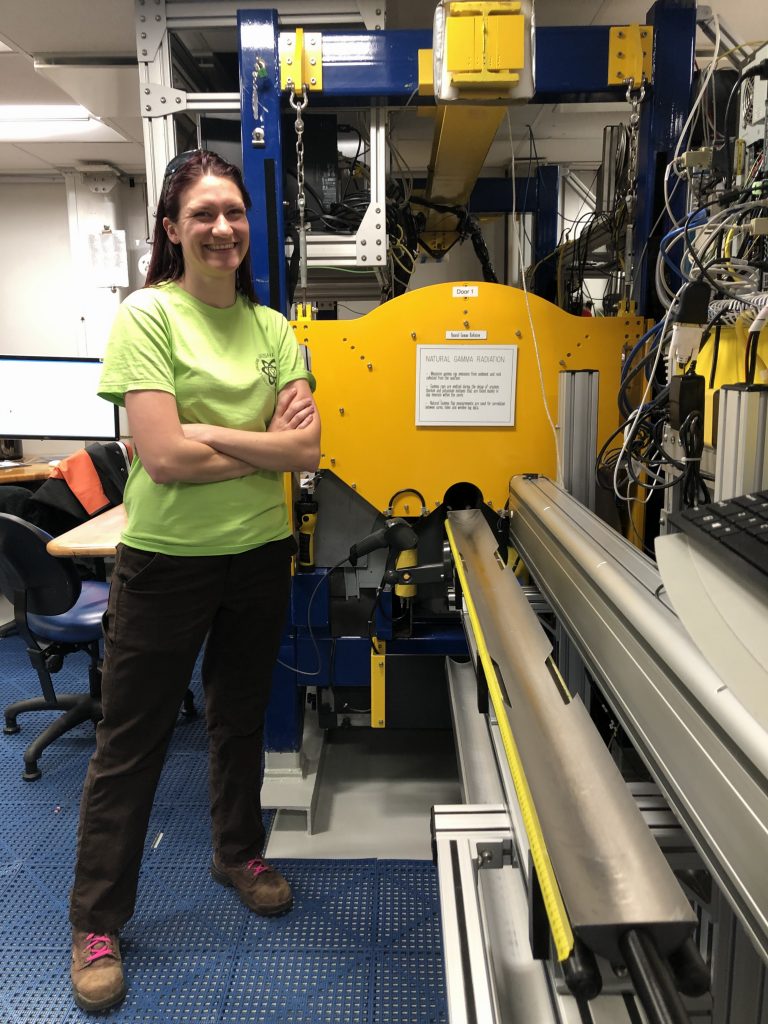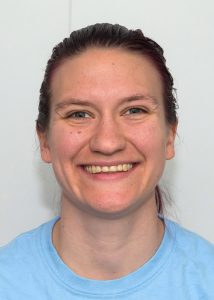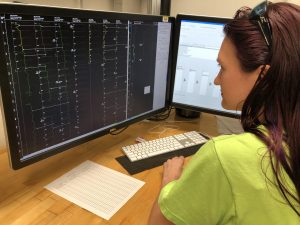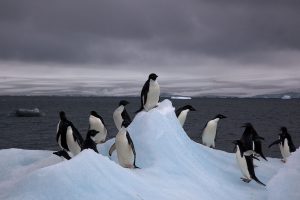
Career Spotlight: Stratigraphic Correlator Jennifer Middleton

-Worked on the JR before: No
Jennifer Middleton Interview
Please describe your job duties while on the JR. What will you be doing on a daily basis?
-
-
-
-
-
-
- Deep sediment cores are drilled in ~10 m segments at a time, but sometimes you get gaps in the sedimentary record between those 10 m segments. In order to construct a record with no gaps, we typically drill multiple holes at each site of interest. As stratigraphic correlators, our job is to match wiggles observed in the data from one hole to the data wiggles in the next hole in order to splice together a complete sedimentary record for each site that we core. When we aren’t splicing records together, we help the physical properties team scan fresh cores on deck.
-
-
-
-
-
Describe one instrument or tool that is essential for you to do your job? Or a piece of equipment on the JR that is useful and why – what does it do?
-
-
-
-
-
-
- Back in the lab on land, the most important tool I use is a mass spectrometer. It electrifies the atoms in your sample and shoots them past a big magnet that separates the atoms by mass. The lightest atoms follow a path that bends a lot as they pass the magnet, while the heavier atoms follow a path that bends less. In this way, we can determine exactly which isotopes and elements are in each sample. We use the isotopic and elemental composition of our sediment cores to learn all kinds of things about what the ocean was like in the past, including when the sediments were deposited, how fast the sediments accumulate, and how much wind-blown dust was deposited to the site back in time.
-
-
-
-
-

Why is your work (or research) important? What question are you trying to answer or how does your work/research help assist/advance scientific knowledge?
- I’m interested in learning how Earth’s climate system behaved in the past. This helps us better predict how climate will respond in the future to increasing concentrations of atmospheric CO2. On this cruise, I’m specifically interested in how dusty the Southern Ocean was during past intervals when global temperatures were warmer than today. Dust is an important source of the micronutrient iron to the Southern Ocean, so I’m also interested in how past changes in dustiness affected biologic communities and carbon export in the Southern Ocean.
Why the ocean? What made you choose a career at sea or career that involves the ocean?
- For full disclosure, sometimes I work on land too. But, I love the ocean and enjoy thinking about it! The ocean makes up most of the surface area of Earth, transports heat around the world, and can hold a lot of carbon. If you want to understand the climate system, then you need to understand what the ocean is doing.
What are you most excited about for this expedition and/or being on the JR?
- I’m really excited to get to know the rest of the people sailing with us on the JR. I’m especially looking forward to many future collaborations with other members of the science party.
What are three things you think are needed for a successful expedition at sea? And Why!
- Patience
- Flexibility
- A good sense of humor
- At sea, you’ve got a lot of people stuck in close quarters all trying to accomplish a lot of different goals. On top of that, all kinds of things can come up to throw a wrench in your plans (like bad weather, technical difficulties, dropping a tool overboard, etc…). It’s important to be patient with everyone on board and be able to adapt to changing conditions without getting too frustrated or upset. Plus, everything is more fun with a good sense of humor.
If you could answer one question about our Earth – what would it be and why?
- What is the climate system going to be like in the next 100-200 years? We know that global climate is changing due to increasing concentrations of atmospheric CO2. These changes will have profound effects on human civilization as we know it, from changing coastlines, to changing agricultural productivity, to changes in the frequency of climate-related disasters like hurricanes, floods, draughts, wild fires, and other storms. The better we understand what our future will be like, the better we can prepare ourselves to adapt to it. Maybe we could even get our governments to work together with a bit more urgency to mitigate the problem by limiting/ceasing emissions of anthropogenic CO2!
What is your favorite sea creature and why?
- I love penguins because they like to swim and are a bit clumsy on land, just like me!

When did you know you wanted to pursue a career in science or an ocean science career?
- I’ve loved the ocean as long as I can remember and I’ve loved science since I was in 7th grade (shout out to middle school STEM teachers!). Figuring out how to combine these two interests into a career ever since then has been quite an adventure.
What do you personally hope to gain or experience while on EXP383?
- I’m excited to see how the deep sediment cores are recovered and studied and I’m learning so much already! Otherwise, I really look forward to collecting awesome sediment records spanning back into the Pliocene (~3 to 5 million years ago) because the Pliocene is an important past example of warm climate behavior (with atmospheric CO2 concentrations close to modern values) and it’s very hard to get Pliocene age sedimentary records without a big drill ship.
What message do you have for anyone considering a career at sea or a career involving the ocean sciences?
- Don’t limit yourself to the traditional jobs you learn about in school. Growing up, I thought being a chemist meant wearing a lab coat and swirling blue fluids in beakers. I didn’t know that I could be a geochemist that collects samples at sea or in the field and uses chemical tools to study the Earth itself. Also, there are MANY ways to work in ocean/geo sciences that don’t even require getting a PhD (such as working on a research vessel or being a laboratory technician). So don’t feel limited to any one specific path!
What do you do back home when not on the JR?
- If I were not on the JR right now, I’m be back at home frolicking in the warmth and sunshine of a NYC summer with my friends.
Do you get sea sick? If yes or sometimes, please also select the other tab and describe how you cope with it.
- Yes: I get carsick all the time, so I made sure to load up on sea sickness meds and ginger candies in preparation for this cruise. In my past experiences, I’ve found that my body gets over sea sickness with the first few days of being at sea. So far, no problems yet on the JR. Fingers crossed I continue to feel alright!
The need for space comes in many forms. Which type of space, in general, is the most important to you?
- ___Personal Space
- ___Creative Space
- ___Outdoor Space
- _X__Emotional Space
- ___Physical Space
- ___Spiritual or Meditative
- ___Outer Space
- ___Community Space
- ___Quite Space
- ___Productive/Work Space
- ___Digital/Virtual Space
- ___Public Space
- ___Inner Space
- ___Other:
Why that type of space? What makes it important to you and will it be available while on the JR?
- On the JR (and in life in general), I think emotional space is extremely important. Sometimes people forget that we’re all humans and we’re all just trying to get by. You never know what issues may come up for someone during 2 months at sea (from work itself, or dealing with other people on the ship, or from our lives on land) and it’s essential to have space to deal with the emotions that come up. On the JR, this can come from the empathy of others on the ship, or from finding the right place to process things (like in the privacy of your room when your roommate is on shift, or down in the gym with the music cranked up, or out on the deck during a quiet moment).